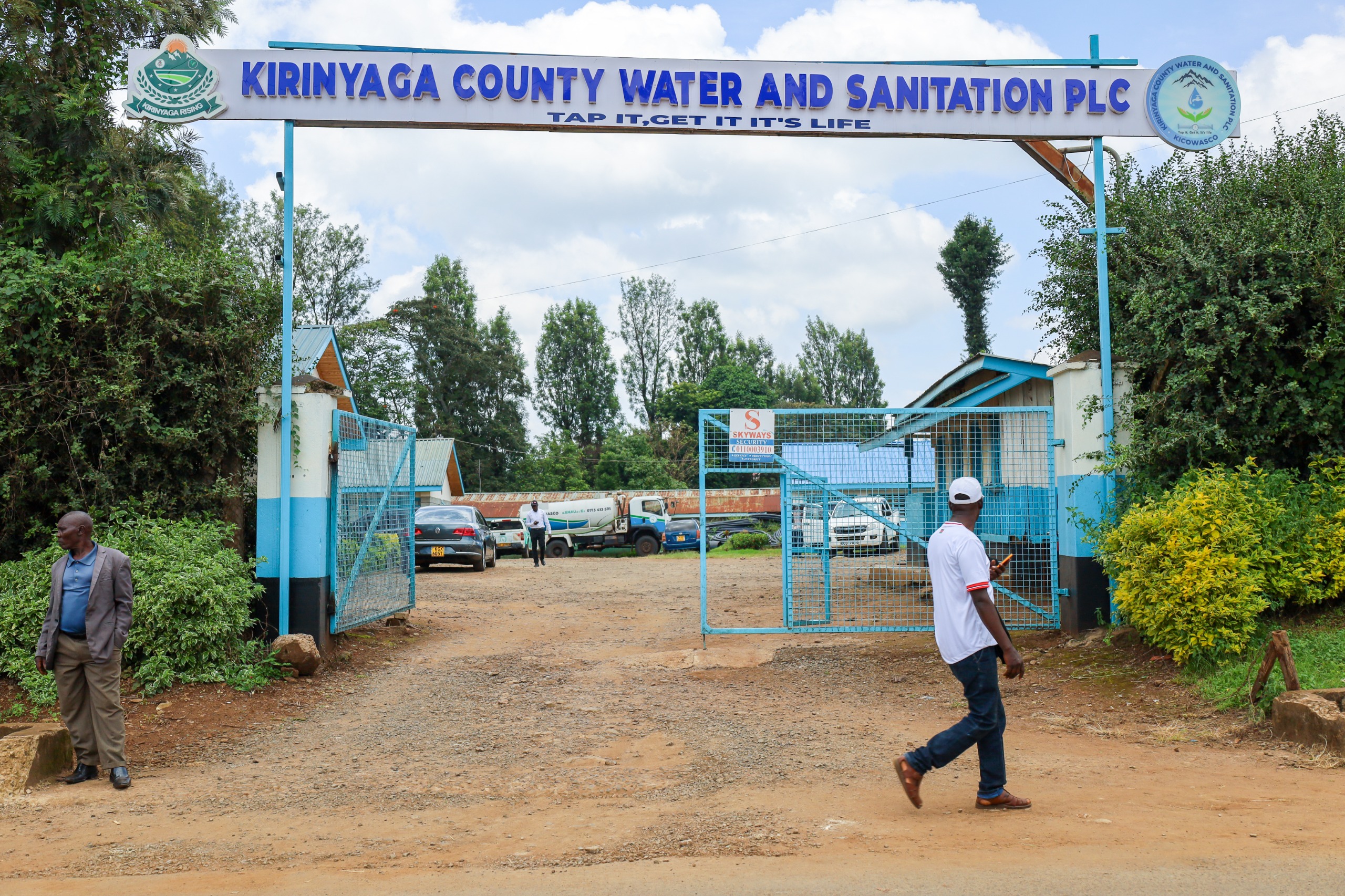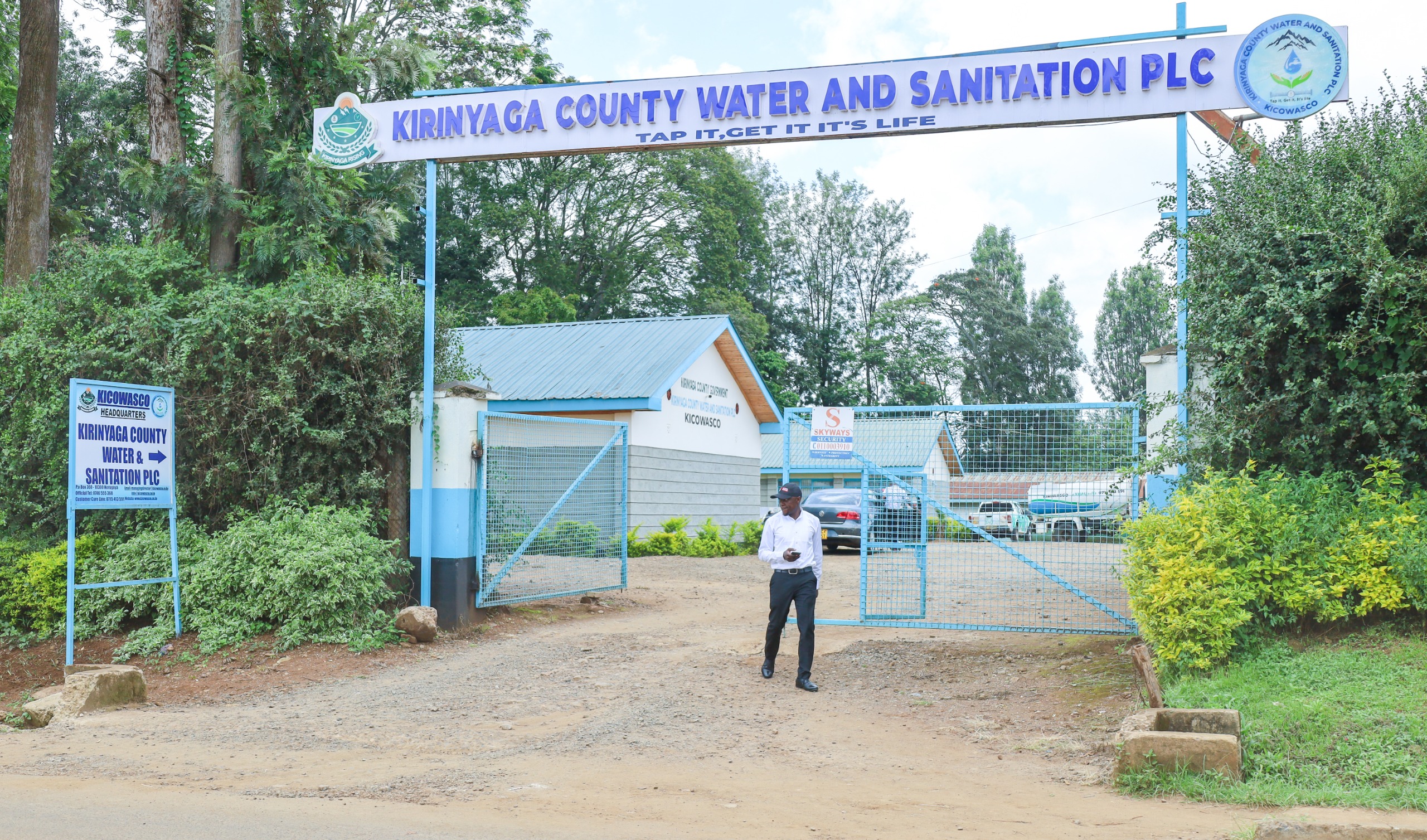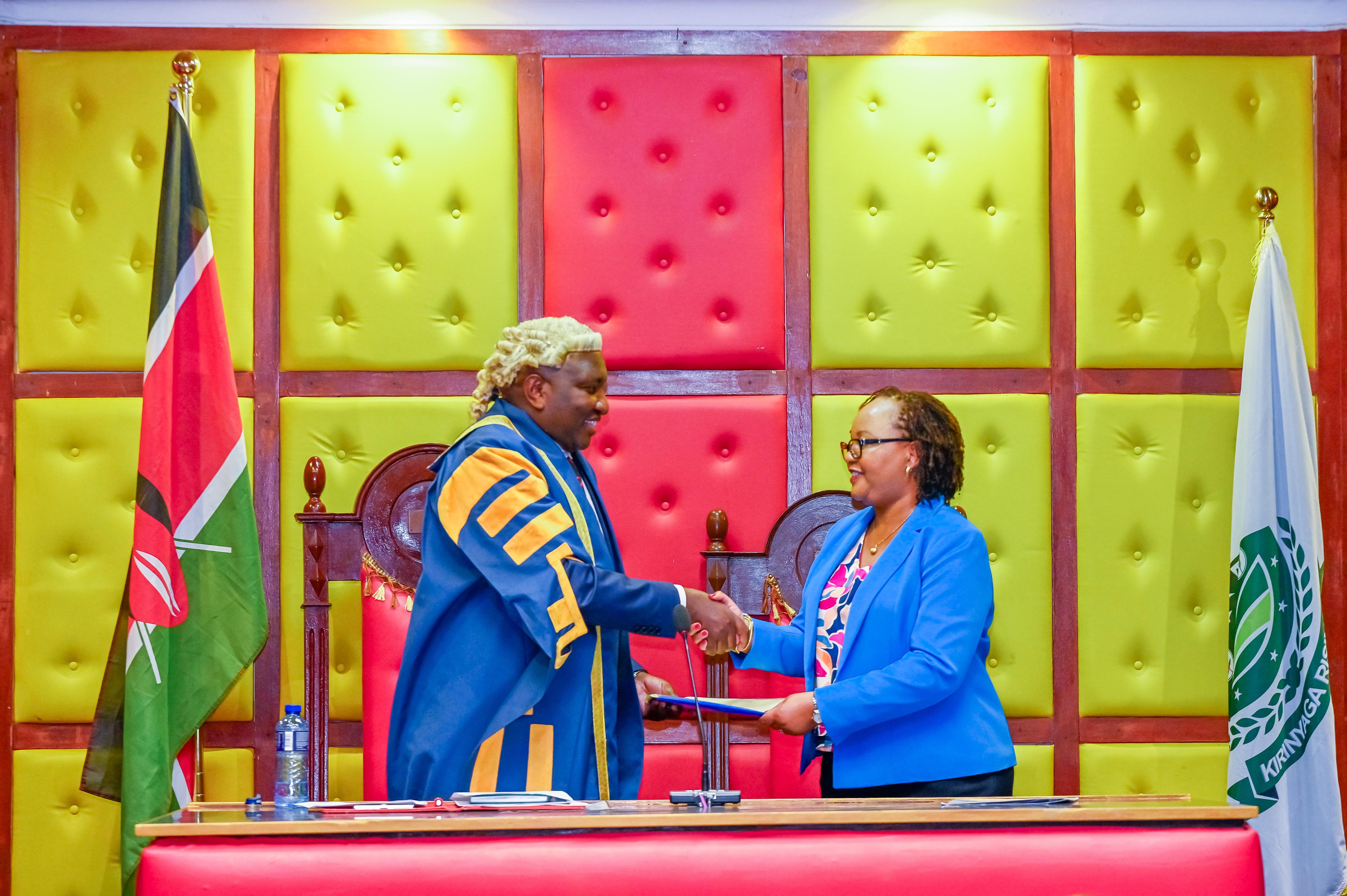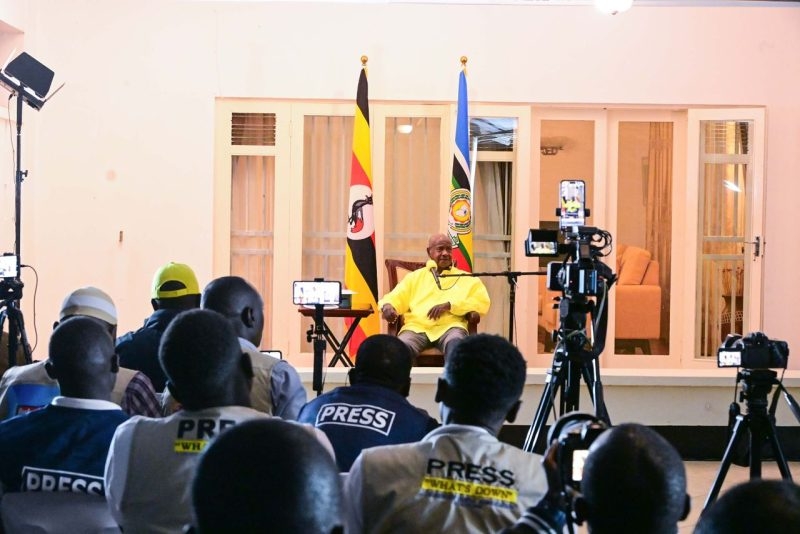
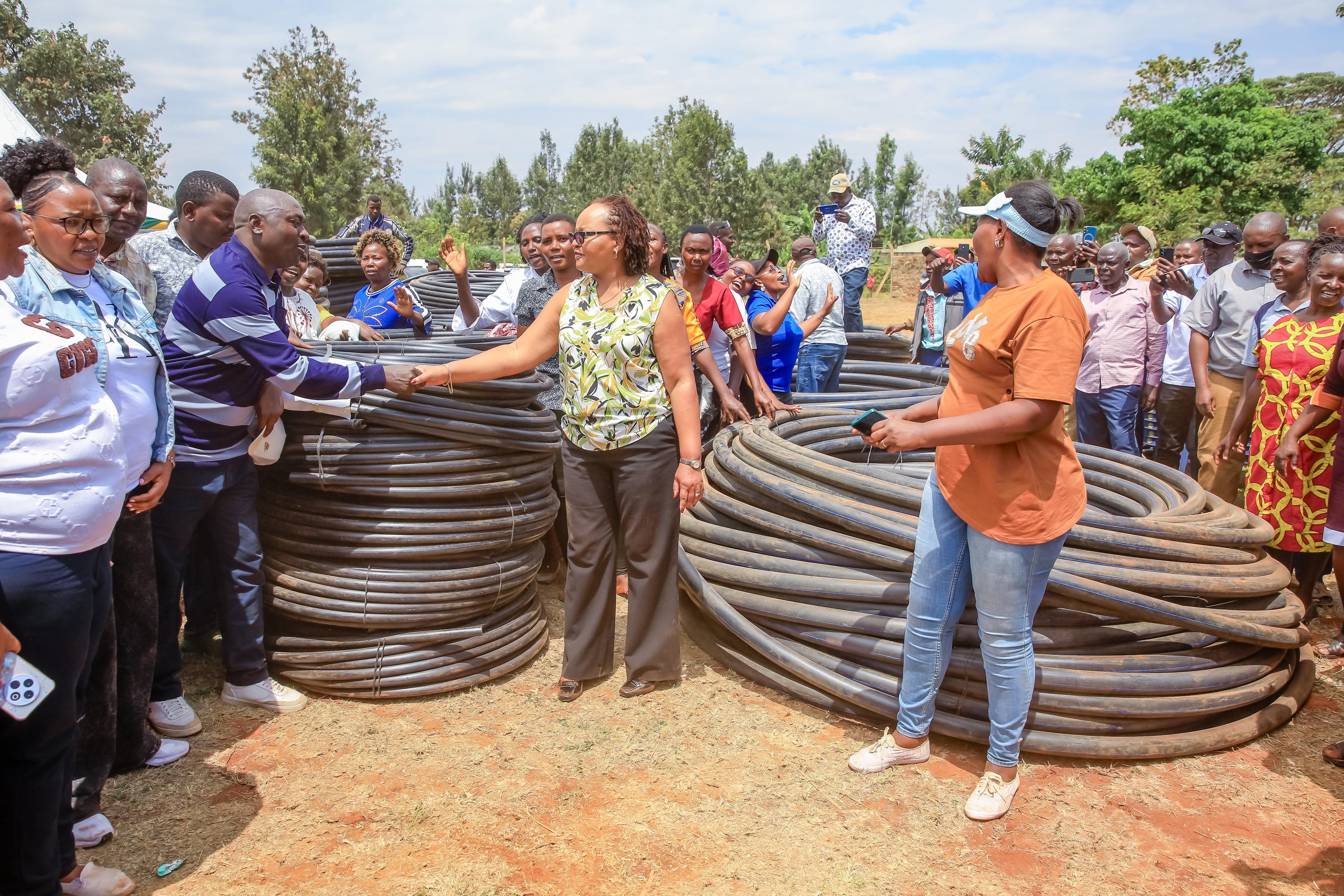
Kirinyaga Governor Anne Waiguru giving out water pipes to extend access of water in the county on November 12, 2025 / HANDOUT
The County Government of Kirinyaga has set aside Sh100 million to expand bulk water supply to 30,000 households in Mwea Sub-County as part of efforts to increase access to clean and safe water.
Governor Anne Waiguru said the allocation will fund phase one of the extension of the Kutus–Kimbimbi bulk water main pipeline and feeder lines to supply domestic water to residents of Gathigiriri, Tebere, and Thiba wards.
Speaking during her State of the County Address (SOCA) at the Kirinyaga County Assembly, Waiguru noted that the initiative is aimed at reducing the prevalence of waterborne diseases linked to unsafe water sources.
"Compared to other sub-counties, Mwea was lagging in water coverage, both for domestic and irrigation. This is why we are investing a lot of resources to ensure piped water reaches all residents,” she said.
She added that Mutithi and Wamumu wards will receive piped
water through the extension of the Kandongu–Mutithi bulk water pipeline, while Nyangati
and parts of Gathigiriri and Tebere will benefit from the rehabilitation of the
Nyamindi intake.
In Kangai Ward, existing lines will be extended to serve areas such as Kombuini, Kangai, and Karii, while residents of Murinduko Ward will be supplied after the completion of the Mugaro Water Project.
Waiguru also revealed that the county is funding 33 ongoing water projects, including boreholes, intake constructions, and water fittings at a cost of Sh44.8 million, aimed at raising access to clean water to 78 per cent of county residents.
She said that since 2017, her administration has implemented over 200 water projects, increasing the number of active water systems from 170 to 370 and extending clean water to more than 100,000 households.
“These investments have raised household connections from 67,790 in 2017 to the current 139,596. This has reduced the burden of fetching water from distant or unsafe sources, improved hygiene, and boosted economic productivity through small-scale irrigation, livestock rearing, and other cottage industries,” she said.
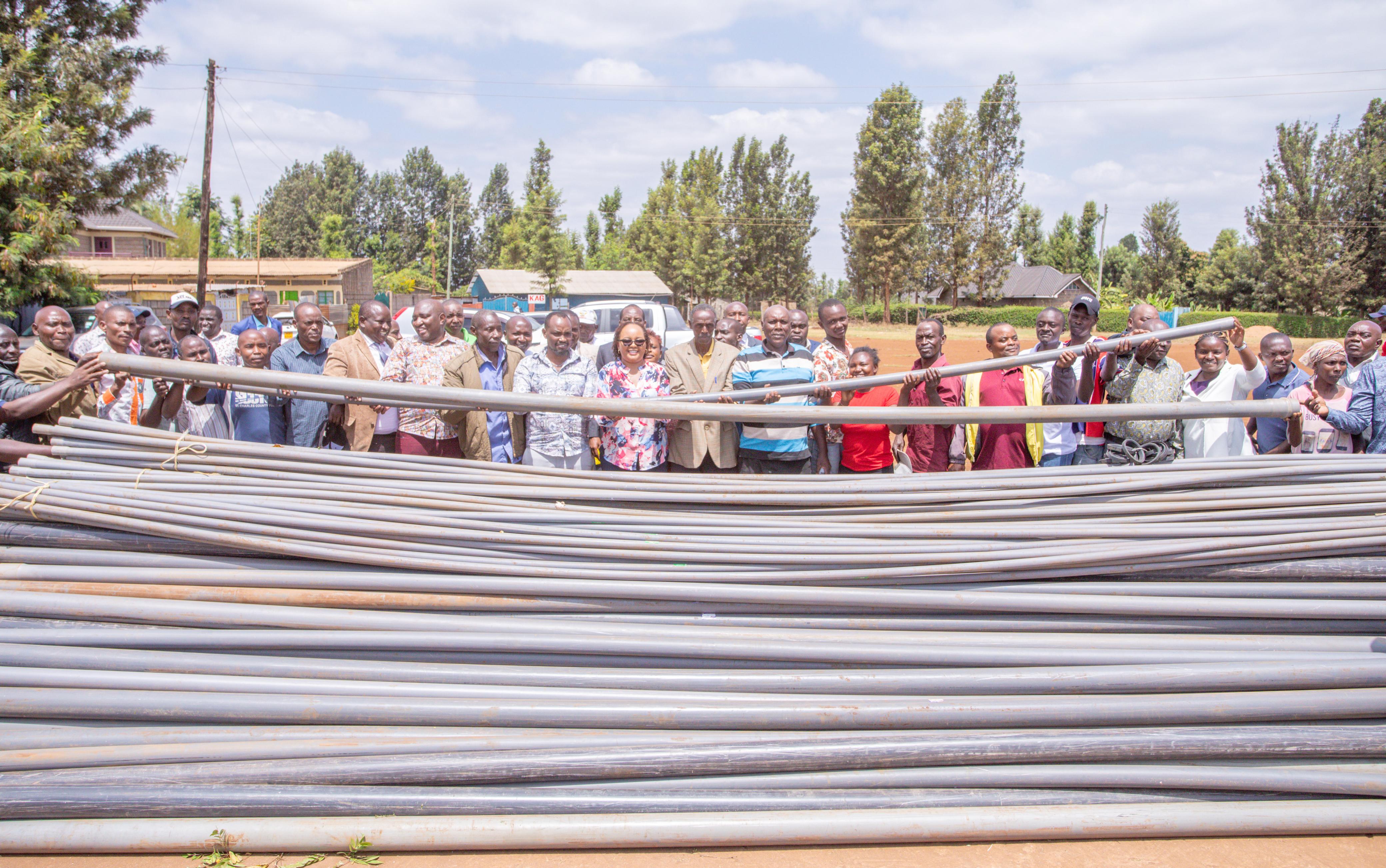
To enhance sustainability, the county is also working to curb water losses, which have reduced from 59 per cent to 47 per cent with a target of below 35 per cent by next year.
The county has installed 27 electro-magnetic zonal meters and District Metering Area (DMA) systems to monitor flow and billing, ensuring efficient management of water resources.
Waiguru said ongoing reforms at the Kirinyaga County Water and Sanitation Company (KICOWASCO) are bearing fruit, attributing the drop in Non-Revenue Water (NRW) to measures such as the installation of a master meter at the Muratiri Water Treatment Plant to accurately monitor production versus consumption.
“These reforms have enhanced accountability, improved operational efficiency, and positioned the utility to better serve our growing population,” Waiguru added.
